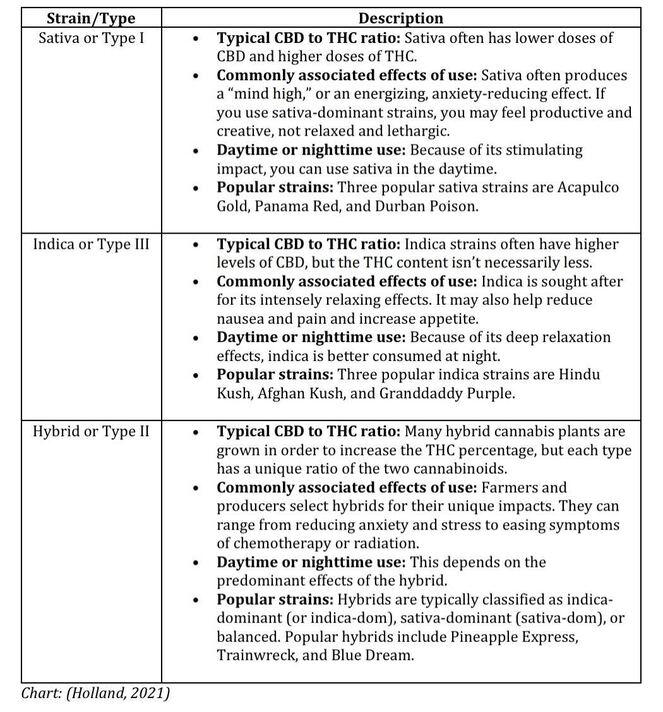|
By: Kelly Halonen, RSW, MSW Marijuana has had its controversy over the years. With it now being legal in Canada, more people are exploring its effecton their mental health. While not for everyone, some people find that marijuana can help their anxiety; and though I don’t believe that it should be used as a main coping skill, it has its benefits. Here’s some basic information about marijuana and what we know about its effects. Please note that this article may be a triggering for some and we recommend always discussing (prior to use) with your family physician and your mental health provider. BackgroundYou’ve probably heard the terms marijuana and cannabis. Both terms are often used to describe the same thing. Marijuana specifically refers to cannabis products that are made from the dried leaves, flowers, seeds, and stems of the cannabis plant, while cannabis refers to cannabis products in general. You may not have heard of the Endocannabinoid System (ECS). This system is a nerve signalling system, that helps maintain emotional, physiological, and cognitive stability. It plays a role in regulating sleep, mood, appetite, memory, and reproduction/fertility. This system is active in your body, even if you don’t use cannabis. There are 2 main endocannabinoidmolecules that your body makes as needed. The ECS is found in all parts of the brain that are necessary for processing anxiety, fear, and stress. The ECS is important for all of these responses to function. It can serve as a buffer for emotional responses. This system is still being studied to learnits functions andexactly how it works. One of the main cannabinoids found in cannabis is Tetrahydrocannabinol (THC). This is the part that gets you “high.”The THC interacts with the ECS by binding to receptors, just like endocannabinoids. This is then what causes the effects of marijuana. The second main cannabinoid found in cannabis is cannabidiol (CBD). CBD does not get you high and does not usually have negative side effects like THC can. Researchers aren’t sure how CBD interacts with the ECS yet,but it does not bind to the receptors the same way THC does. What is known is that CBD can help with nausea and pain. Benefits & Side EffectsThere are a variety of factors that contribute to how marijuana can affect you such as, what strain you use,dosage, how you use it (smoking, edible, etc.), and your tolerance level. While there are many benefits, these benefits may not appear for everyone. There are also possible negative side effects you may experience. Possible Benefits of Marijuana:
Possible Side Effects of Marijuana:
The Risk for Marijuana Causing Anxiety Is Associated with:
Strains/TypesTo have a better idea of how marijuana may affect you, it is important to know what strain or type you are using. There are two main types, Sativa and Indica. Sativa is known for causing a “head high, an invigorating, energizing effect that can help reduceanxiety or stress and increase creativity and focus,” while Indica is known for, “with full-body effects, such as increasing deep relaxation and reducing insomnia” (Holland, 2021). There is then Hybrid, which is a mix of Sativa and Indica. Sativa, Indica, and Hybrid were previously known as different strains, although it is becoming more common for them to be referred to as chemovars (chemical varieties) which are classified as:
THC seems to decrease anxiety when used in a lower dose, and increase anxiety when used in a higher dose. CBD seems to decrease anxiety no matter the dosage used. If you use it frequently over a short period, tolerance to these effects can build. It is important to start with a lower dose when first starting to use, so you can see how it affects you. It is also important to consider if it will interact with any medications or medical conditions you currently have. Talking to your doctor is a good way to know for sure if marijuana is right and safe for you to use. Types of ConsumptionWhen using marijuana, it is also important to know how your consumption method will affect you.
ConclusionMarijuana can affect each person differently. For some, it can help with anxiety and depression, and for others, it doesn’t. When starting to use marijuana for anxiety or mental health reasons, it is important to know which strain/type you are getting and to start at a low dose and slowly work your way up, to avoid negative effects. With the many cannabis stores open locally, you can even ask them for direction on what products may be best for you based on what you want. Make sure that you are in a safe and comfortable environment when using, as this can also lessen the chance of negative effects occurring. Make sure that you use it with people that you trust, and that you know where your supply came from, and if it is a trusted source. To avoid becoming dependent on marijuana, it is also important to learn other coping skills to help with your mental health. These skills you can find on the internet, through reading books or going to counselling.If you are wanting to learn more, Leafly(leafly.ca) has many educational articles and podcasts about marijuana and how it can impact mental health. Resources:
Drug Policy Alliance (2021). How Marijuana is Consumed. Drug Policy Alliance. https://drugpolicy.org/drug-facts/10-facts-about-marijuana/how-marijuana-consumed. Holland, K. (2021, March 22). Sativa vs. Indica: What to Expect Across Cannabis Types and Strains. Healthline. https://www.healthline.com/health/sativa-vs-indica. Raypole, C. (2019, May 17). A Simple Guide to the Endocannabinoid System. Healthline. https://www.healthline.com/health/endocannabinoid-system. Stoner,S. A.(2017, June).Effects of Marijuana on Mental Health: Anxiety Disorders. Alcohol & Drug Abuse Institute, University of Washington. http://adai.uw.edu/pubs/pdf/2017mjanxiety.pdf. |
|
OverviewNWO’s source for all things relationships, mental health, wellness, lifestyle, and pandemic support. Kelly Magazine is a mental health outreach initiative created by Kelly Mental Health and supported by Kelly Mental Health Foundation, a non-profit organization dedicated to improving the community in the area of mental health.
|
Magazine |
Follow Us |
In support of @kellymentalhealthfndn |
© COPYRIGHT. ALL RIGHTS RESERVED. WEB DESIGN BY KMH





